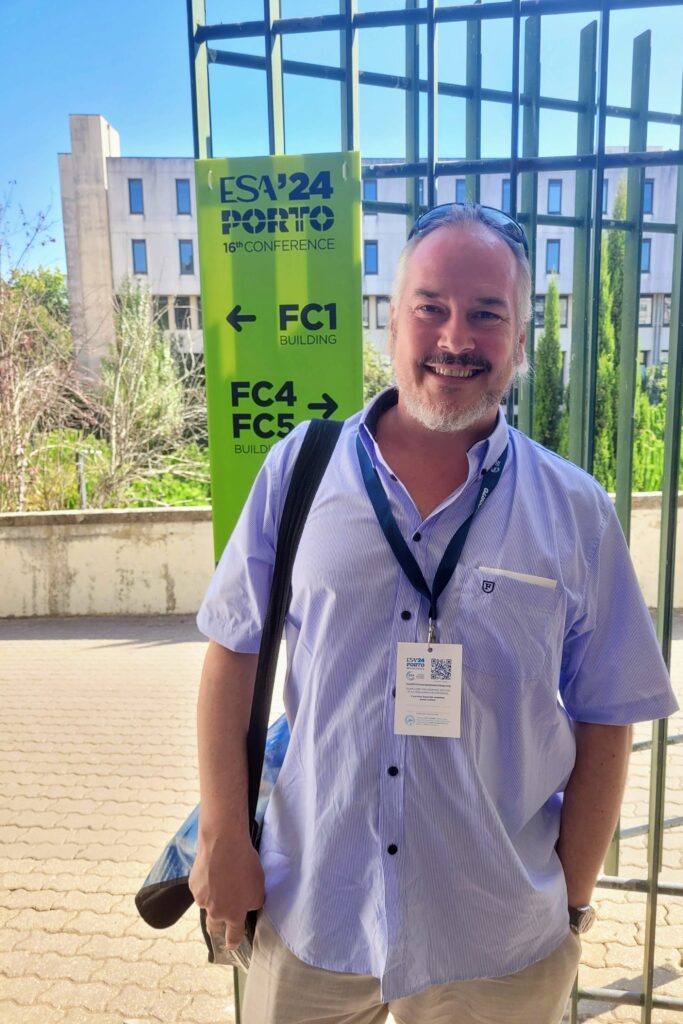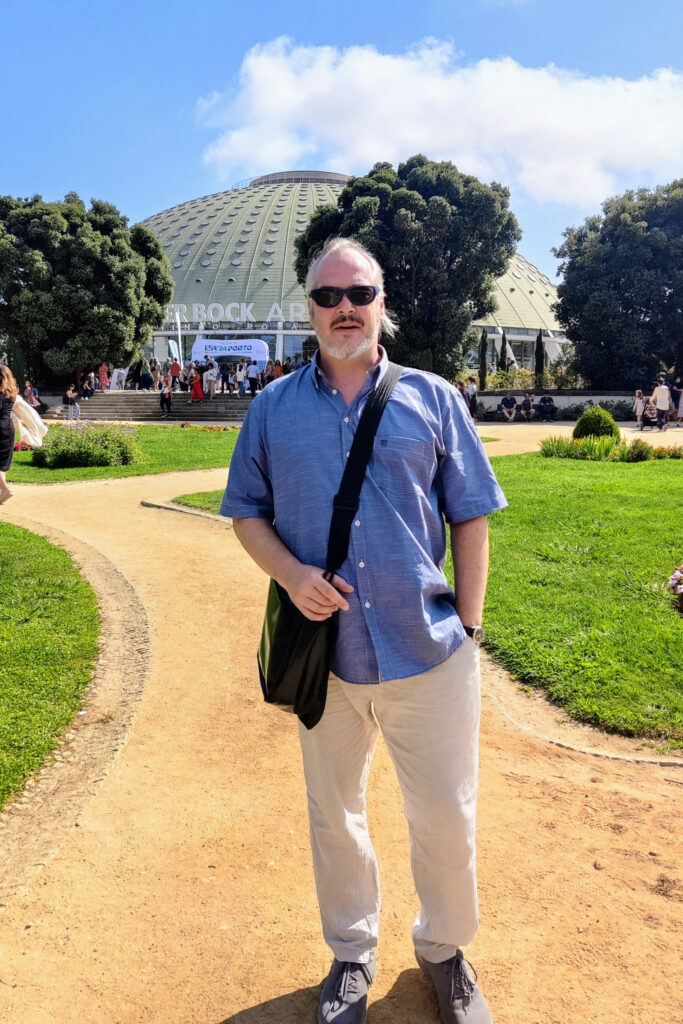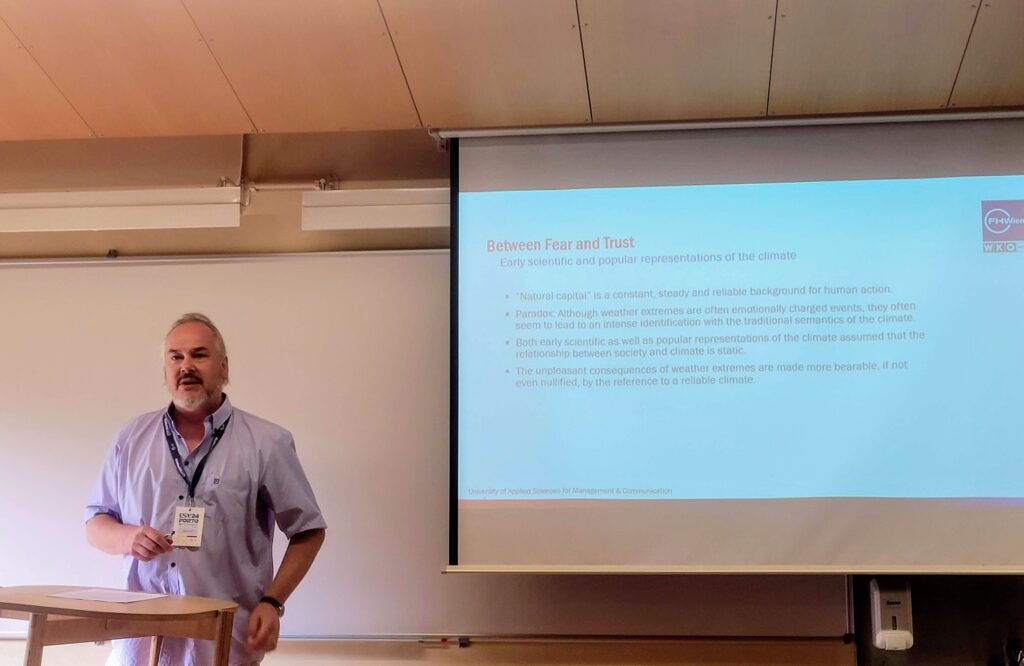FH-Prof. Dr. Marian Adolf, communication scientist and media sociologist at the Department of Communication, gave a talk on trust and fear in communicating the effects of climate change at the congress of the European Sociological Association (ESA) in Porto.
Climate change has become a pressing global issue that increasingly affects our everyday life. Despite frequent extreme weather events and scientific consensus on its human origin, many people still hold on to entrenched notions of climate stability. Marian Adolf’s presentation at the ESA 2024 explored the evolution of climate perceptions – from earlier beliefs in a constant, reliable environment to the growing awareness of anthropogenic climate change. It delved into the challenges of communicating the urgency of the crisis to the public, emphasizing the need for a collective shift in understanding how matters have changed.
Historically, climate was viewed as constant and predictable – a background feature of human existence, as early scientists like Eduard Brückner suggested. In the 19th and 20th centuries, the idea persisted that while societies evolved, nature remained a stable force. This belief was not only widespread among the general public but also prevalent in scientific communities. Deviations in weather patterns were seen as temporary anomalies rather than evidence of a deeper, systemic shift.
Fast forward to today, and the dominant perception of climate remains a powerful influence on public behavior and policy. While scientists now unanimously agree that climate change is real and primarily driven by human activity, public understanding has not kept up. Many people still trust in nature’s ability to balance itself out, underestimating the severity of the crisis.
As extreme weather events become more frequent, such as the recent devastating floods in Eastern Austria, the effects of climate change are impossible to ignore. Yet, despite these alarming signs, we are still prone to maintaining outdated beliefs about the stability of the climate.
This gap between scientific knowledge and public perception poses a serious challenge to effective climate action. Research shows that while the majority of people acknowledge climate change as a problem, few feel personally threatened by it. This disconnect undermines efforts to build broad societal support for the policies necessary to combat climate change.
But rather than framing it as a destructive force to fear, we must emphasize the idea that society has a role to play in caring for the environment. Building trust in scientific expertise and promoting shared democratic values can foster a collective effort toward climate action. Ultimately, as we face the future of a rapidly changing climate, our ability to adapt will depend on our willingness to confront outdated beliefs and embrace a new, more responsible relationship with nature.


